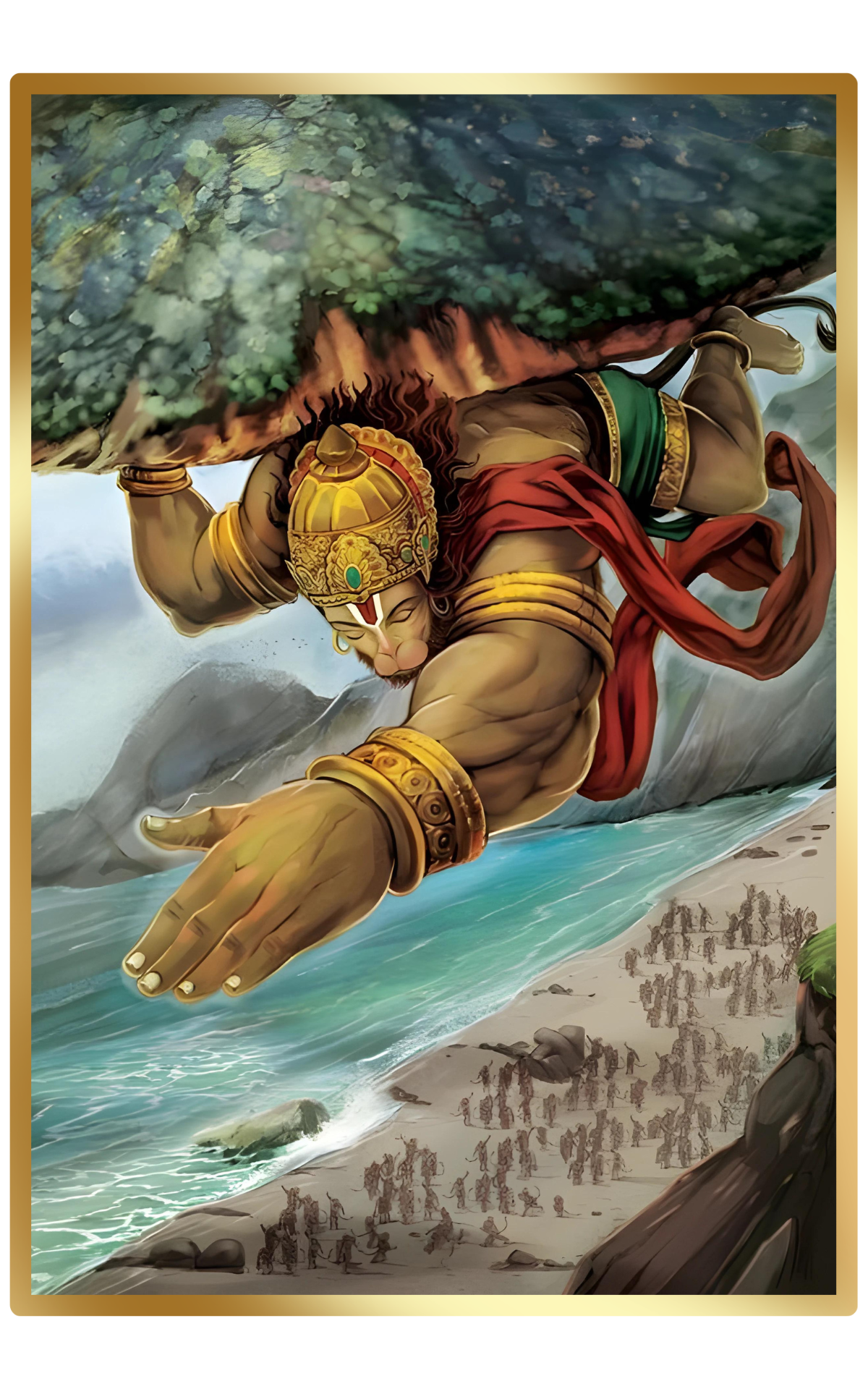you must always be driven by selfless service

In the ancient Indian epic Ramayana, the demon-king Ravan abducts Sita and takes her away to his island kingdom of Lanka. To save her, Ram and Lakshman take the help of the vanaras and declare war against Ravan. In this war, Ravan’s son Indrajit strikes Lakshman with a deadly arrow containing the venom of serpents. As the poison begins to spread throughout his body, Lakshman loses consciousness, and great danger looms over his life. Only a herb called Sanjivani that grows on a mountain far away in the north (Dronagiri) can save Lakshman; however, it needs to be applied to the wound before sunrise the next day. Immediately, Hanuman turns north and takes a giant leap. After many obstacles and lost time, rather than finding the herb on the Dronagiri mountain in the dark, Hanuman picks up the entire mountain and takes it south to Lanka. Eventually, the herb is found and Lakshman is saved. As Ram witnesses this miracle, his relief and elation know no bounds and he embraces Hanuman in sheer joy.

Ram expresses his gratitude to Hanuman for saving his brother Lakshman from the jaws of death. Hanuman smilingly tells Ram that nothing in the whole world is greater and more pleasurable than serving him. In response, Ram praises him incessantly and declares that he is as dear to him as his brother, Bharat. This comparison is noteworthy and has special significance. When Bharat learned about Ram’s exile, he did not readily accept the throne. Rather, he begged Ram to come back to Ayodhya. But Ram politely refused as he had given his word to his father that he would spend fourteen years in forest exile. So, Bharat returned to the royal palace, placed Ram’s footwear (a pair of padukas) on the throne, and ruled the kingdom as a regent of Ram until his exile was over. This incident tells us about the integrity and goodness of Bharat, who in spite of having all the wealth and power in his possession, did not let greed, envy, and self-centeredness corrupt and control him. He instead chose the path of humility, unconditional love, and selflessness, thus communicating great maturity and wisdom on his part.
One key lesson we can all learn from these events is that we must always be driven by selfless service, not selfish ambitions. The more we serve others without expecting anything in return, the more peace, joy, and fulfillment we’ll experience.
If you enjoyed this spiritual insight, do check out my book Hanuman Chalisa: A New Translation.
The aim of this book is to offer a renewed understanding of this beautiful, soul-enhancing hymn in the form of simple, concise, and easy-to-read meditations. Every meditation has been crafted to give you the essence of Tulsidas's message in each verse of this sacred song.
No words can describe the bliss and joy a person feels when they read, recite, chant, sing, and/or listen to Hanuman Chalisa on a daily basis. This book will enhance your experience and understanding of this amazing hymn, and serve you for years to come.
Get your copy today!


